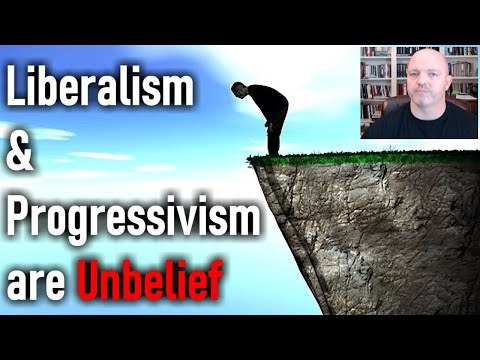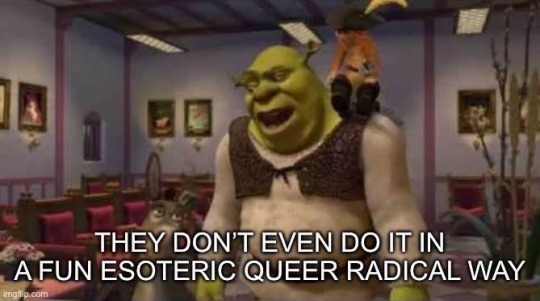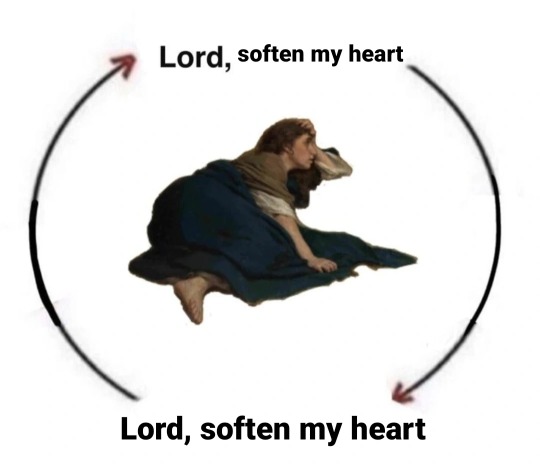#liberal theology
Explore tagged Tumblr posts
Text
by Ian M. Giatti | What happens when "cancel culture" infects the Church? Promise Keepers, an Evangelical organization founded in 1990 that holds men's rallies in stadiums nationwide, has seen several scheduled events at churches and other venues canceled in recent months…
#Your Daily Inspiration#morning headlines#Christian news#The Christian Post#cancel culture#Christian church#Promise Keepers#events canceled#gender ideology#progressive churches#liberal theology#evangelical men's outreach
11 notes
·
View notes
Text
Howdy folks, the Senate will be considering a major resolution blocking arms to Israel. This is huge and historic; it would block government contracting and about $20 billion in arms and support. This is an uphill battle, PLEASE urge your senators to support S.J.Res114-115. This is maybe the most important piece of legislation relating to Palestine that we have ever gotten and we must seize this opportunity.
This doc has information on the resolutions and their process, as well as sample messages and a phone script you can use. Please, use this moment to hear witness for your neighbors.

#christians pray for palestine#christians for a free palestine#Palestine#gaza#free palestine#🍉#advocacy#liberation theology#S.J.Res114#S.J.Res.115#arms embargo
47K notes
·
View notes
Text

What dispensationalists and libs look like when asked for a shred of historical evidence that Revelation was written after AD 70.
#dispensationalism#dispensationalists#liberal theology#textual criticism#biblical chronology#Revelation of John#Apocalypse of John#Charlie Day#pepe silvia#Conspiracy theory#The Post-Temple estimate for the writing of Revelation just doesn't add up#Preterism#Revelation
1 note
·
View note
Text
Liberalism & Progressivism are Unbelief / The Liberal Harry Emerson Fosdick - Pastor Hines Podcast
▶️Pastor Patrick Hines has recently had a brand new book published, called, “Earth’s Foundational History – Part 1: Genesis Chapters 1 Through 5.” (Paperback – May 4, 2023) https://cutt.ly/16RCeZ0 These two books are also available on Amazon. All proceeds go directly to Pastor Hines: ▶️Am I Right With God?: The Gospel, Justification, Saving Faith, Repentance, Assurance, & The New Birth…

View On WordPress
#Christian#christian podcasters#christian podcasts#Christianity#God#Jesus Christ#liberal#liberal christianity#Liberal Theology#Liberalism#pastor#preacher#presbyterian podcasters#presbyterian podcasts#reformed christian podcasters#reformed christian podcasts
0 notes
Text

"Weep and howl, you rich, for the gold you have hoarded and stolen from the workers will eat your flesh like fire." -Bernie Sanders
(Just kidding that was the Apostle James)









To paraphrase the Gospel of Mark:
Even if you're rich you can't buy your way to being good. Rich doesn't mean good.
#liberation theology#religion#christianity#christian anarchism#christian socialism#im not going to go out here and proclaim that St. Ambrose was an early Christian anarchist because I don't think that is...accurate#but correct me if I'm wrong there#theology#early christianity#spiritual franciscans
1K notes
·
View notes
Text
See the thing about fundamentalists and trads and Christian nationalists and MAGA evangelicals and ethnocratic bigots is that they render the faith so boring.
I take no issue with the fact that they would look at me and say that I’m not a member of the faithful because their faith is radically, inherently, ontologically distinct from mine. My God is too big and too loving and too esoteric to fit neatly into the gendered understanding of an authoritarian white father disciplining his children for not perfectly falling into lockstep. My Savior is the man who told the religious leaders “Caesar can have his idolatrous blood money, but give God your heart and your faith,” challenging the notion of an earthly ruler. My apostles wrote of the throne of man being empty—there are no masters or kings or governments, there is only Jesus Christ, Basileus Basileōn, king of kings. I believe in radical oneness with God through Christ—one flesh and one body, biblical marriage with the bridegroom whose flesh and blood make up the holy Eucharist. My faith is Queer, ancestral, esoteric, anarchist, insurrectionary, anticolonial, antiracist, unorthodox, disruptive, free. When I encounter the divine, or pray to the saints, or sit in the chapel to pray, I am experiencing communion with the sublime, in every sense of the word, the same presence that made the apostles fall to their faces before the transfiguration, that shaped the world from void, that animates the deep care and rage which boil into every aspect of my being.
When conservatives tell me I am not a Christian it is only because they cannot conceive of a Christ and a faith so big, so all encompassing, so beyond anything our human minds can comprehend, and they cannot conceive being in tune with this divinity and being left senseless by the knowledge that the divine above all else is us and loves us more than we could ever comprehend, such that experiencing this love is enough to leave one fundamentally, ontologically changed down to the fiber of their being. I feel sorrow for them. I pray that Christ may reach into their hearts and open their eyes, that they may see not only the horrors that they commit but also the deep love and freedom that awaits them through abandoning their fundamentalism and their bigotry.
Or, in other words, me every time I see another conservative Christian whining about how people aren’t doing Christianity right because they don’t adhere to a super narrow and watered down version of the faith:

#catholicism#catholic saints#catholic#mary mother of god#mary mother of jesus#virgin mary#folk catholicism#folk practitioner#jesus christ#esoteric#queer christian#queer catholic#queer anarchism#catholic anarchism#liberation theology
712 notes
·
View notes
Text
"Unity is, of course, a worthwhile goal, but a unity that silences the call of marginized people for justice is not true unity."
The Disabled God: Toward a Liberatory Theology of Disability, Nancy L. Eiesland
195 notes
·
View notes
Text
A church that doesn't provoke any crisis, a gospel that doesn't unsettle, a word of God that doesn't get under anyone's skin, a word of God that doesn't touch the real sin of the society in which it is being proclaimed -- what gospel is that? Very nice, pious considerations that don't bother anyone, that's the way many would like preaching to be. Those preachers who avoid every thorny matter so as not to be harassed, so as not to have conflicts and difficulties, do not light up the world they live in.
Oscar Romero, The Violence Of Love
607 notes
·
View notes
Text
"Christianity is the only major world religion to have as its central focus the suffering and degradation of its God. The crucifixion is so familiar to us, and so moving, that it is hard to realize how unusual it is as an image of God." Churches sometimes offer Christian education classes under the title "Why Did Jesus Have to Die?" This is not really the right question. A better one is, "Why was Jesus crucified?" The emphasis needs to be, not just on the death, but on the manner of the death. To speak of a crucifixion is to speak of a slave's death. We might think of all the slaves in the American colonies who were killed at the whim of an overseer or owner, not to mention those who died on the infamous Middle Passage across the Atlantic. No one remembers their names or individual histories; their stories were thrown away with their bodies. This was the destiny chosen by the Creator and Lord of the universe: the death of a nobody. Thus the Son of God entered into solidarity with the lowest and least of all his creation, the nameless and forgotten, "the offscouring [dregs] of all things" (1 Cor. 4:13).
—Fleming Rutledge, The Crucifixion: Understanding the Death of Jesus Christ (p.75)

#to speak of a crucifixion is to speak of a slave's death#fleming rutledge#the crucifixion#crucifixion#jesus christ#jesus#episcopalian#progressive christian#progressive christianity#queer christian#liberation theology#theology#christianity#christian
2K notes
·
View notes
Text
Before the abolition of slavery in the United States, the majority of American Christians believed God condoned slavery. That didn't change until after the abolition of slavery. Abolitionist Christians existed, and there were denominational splits over the issue, but the abolition of slavery wasn't made possible through those abolitionist Christians persuading their fellow Christians to change their minds. Their fellow Christians were only able to gain space to change their minds once slavery was abolished. Before it was abolished, many Christians didn't have the ability to imagine God beyond a God that ordained the status quo. The same lack of imagination exists today. This is how most beliefs function. We rationalize and internalize the reality that has been institutionalized in our everyday lives. We naturally want to assume that there must be a good reason that things are the way they are, and that people much smarter than us must have set things up this way. Obviously, individuals can change their minds on their own, but the only way to change minds on a mass scale is to transform the institutions in our everyday lives to give people a new reality to rationalize and internalize. This is how minds change en masse, for better or for worse. Before a massive transformation, people fight and cling to their old conceptions of God, claiming that those who are trying to transform things are working against God, who carefully set things up the way they are. Then, after the transformation takes place, people praise God for leading the way for this necessary historic change. . . . Abolishing the institutions that maintain our inequalities is the only way to open up space for Christian teachings that preach equality to become the norm. Christian history is filled with those who understood this and were empowered by their faith to resist the institutions that used Christianity to oppress them. Those who choose to continue this important work today are joining a long line of Christians who helped shape the path toward our collective liberation.
Damon Garcia, The God Who Riots: Taking Back the Radical Jesus
1K notes
·
View notes
Text
I feel like it's important to be clear that evil is systemic. I mean back when I was being dragged down the conservative pipeline I might have denied that but like. Moses, Jesus, Peter, Paul, John: they all teach that oppressive nations are being energized by unseen spiritual evils. Evil is absolutely built into structures we have made as humans. But the clarification is really important: humans put them there. Which is what should separate Christians from secular leftist: yes there is systematic evil but no destroying the systems won't get rid of them. The problem is in the human heart which is corrupted and sick, in need of not just medicine but the Great Physician: Jesus the Anointed One.
#christianity#christian#jesus christ#faith#bible#keep the faith#faith in jesus#jesus#something to meditate on#progressive christian#progressive christianity#christblr#eucharist#christian faith#christian living#christian blog#christian tumblr#bible study#bible verse#liberation theology#gustavo gutierrez
172 notes
·
View notes
Text

#one of my biggest prayers#always#religion#godblr#liberation theology#the love (etc)#christianity#the love the love the love
1K notes
·
View notes
Text

"But the poor person does not exist as an inescapable fact of destiny. His or her existence is not politically neutral, and it is not ethically innocent. The poor are a by-product of the system in which we live and for which we are responsible. They are marginalized by our social and cultural world. They are the oppressed, exploited proletariat, robbed of the fruit of their labor and despoiled of their humanity. Hence the poverty of the poor is not a call to generous relief action, but a demand that we go and build a different kind of social order."
Father Gustavo Gutiérrez, the father of liberation theology, passed away 22 October 2024 at the age of 96.
314 notes
·
View notes
Text










I'M BACK, B!+CHES!!!!
"Communism is the doctrine of the conditions of the liberation of the proletariat." - Engels, Principles of Communism (1847)
(Pt.2)
#united front#meme#memes#anticapitalism#communism#socialism#imperialism#free palestine#capitalism#anti imperialism#antifascism#free sudan#free congo#free yemen#woke#donald trump#elon musk#maga#snap benefits#gal gadot#snow white#cybertruck#tesla#libertarians#christianity#liberation theology
140 notes
·
View notes
Text



405 notes
·
View notes
